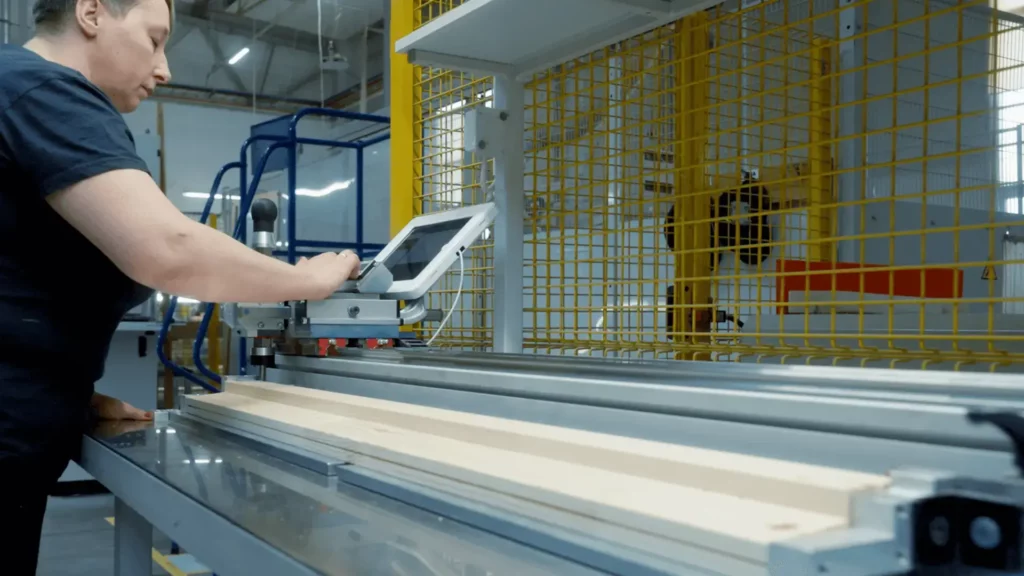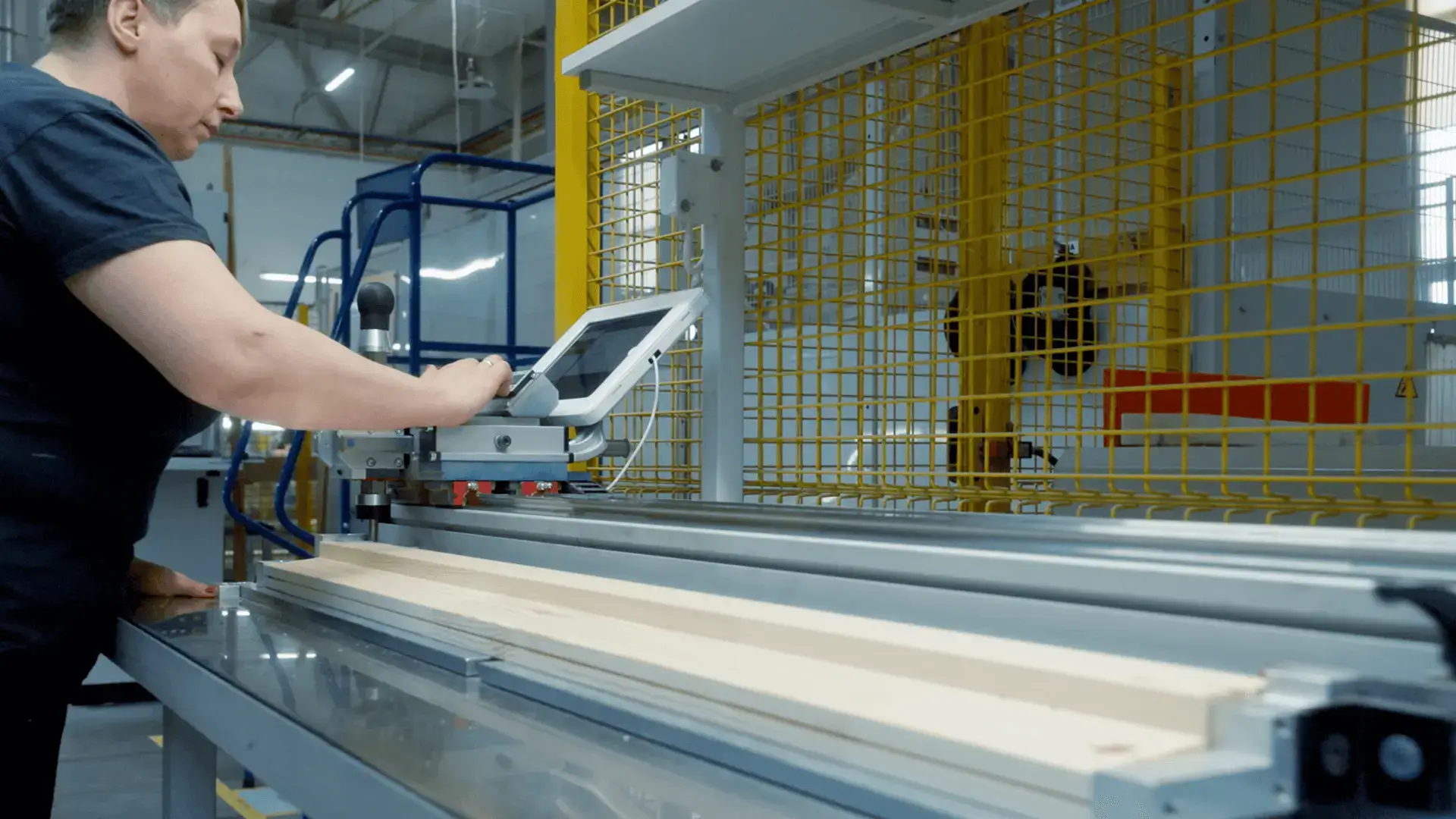
APS and Company Profitability, Part 2: How to Make Optimal Business Decisions

Artur Masłowski

Tomasz Kubach

In the previous part, we showed how APS can be used to optimize production schedules to achieve the best KPI values. In this article, we will delve deeper into how APS can help you determine whether your company can fulfill a specific order, how long it will take, and whether it will be profitable.
Imagine a manufacturing company in the construction industry that regularly manufactures items with standard dimensions of 3 m x 3 m. The production process is stable, machines run efficiently, and employees know exactly what to do at any given moment. Additionally, the factory has developed optimal schedules that ensure efficient operations and timely order fulfillment.

One day, a non-standard request comes in: a client needs an item with dimensions of 3.5 m x 4 m and wants to know immediately whether the company will manufacture it. Although the order is not standard, it is physically possible to manufacture. But how should the completion time and pricing be determined? And more importantly, should the company accept the order at all? Is this really an opportunity for the company?
Typically, we assume an optimistic scenario – that the item is a pilot for a large order and that we’ll gain another valuable client. Hopefully, that will be the case! However, it can also happen that the order only seems attractive at first glance, which is why we can’t afford to make decisions based on guesswork.
The decision to take on such a non-standard order should be thoroughly analyzed not just in terms of whether it can be manufactured, but also whether it’s profitable for the company.
Taking on an order that requires more changeovers, reallocating machines, can significantly disrupt our stabilized daily schedules. As a result, the profit earned may become disproportionate to the losses incurred.

Going beyond standard solutions or breaking away from daily routines is often a significant challenge for manufacturing companies. Naturally, this doesn’t mean that such challenges should never be taken on, but they must be approached with full awareness. We need to understand exactly what we’re committing to, how much we’re risking, and how it will affect our daily operations.
APS provides solutions that help dispel any doubts in the scenarios described above and answer the key question of whether the company can fulfill the order within the expected timeframe.
The ATP (Available to Promise) and CTP (Capable to Promise) functionalities are particularly useful here. ATP considers material availability, while CTP also takes into account the available production capacity.
Ideally, these functionalities should be combined with the What-If scenario. This allows the creation of an alternative schedule that includes additional orders and is optimized according to the rules of the base schedule. In this way, we can determine whether the order can be completed within the expected timeframe. The entire operation is very fast and can be executed within minutes.
At the same time, APS can calculate new KPI values for the scenario. This enables us to verify whether the additional order, even if it doesn’t disrupt other orders and is completed on time, will negatively impact the most critical KPIs, potentially making it unprofitable.
APS functionalities are not only helpful in rejecting unprofitable orders. They can also be effectively utilized when such an order is accepted. For instance, if the expected delivery time cannot be met, APS can quickly generate additional scenarios to establish a new, realistic completion date.
The system also helps identify constraints that prevent us from fulfilling the order according to the client’s expectations. With this information, steps can be taken to remove these constraints and potentially secure the order.
What if the order has already been accepted, the optimal schedule developed, production has started, and suddenly changes occur? These could include issues with material availability or with the availability and performance of machines. In such cases, APS can once again be used to quickly generate a new schedule that incorporates the updated information.
Decisions about taking on new, non-standard orders affect not only the daily operations of a manufacturing company but, more importantly, its profitability. Therefore, it is crucial to make well-considered decisions that consider all potential benefits and drawbacks. Without the proper tools, such an analysis would be too time-consuming or even impossible, as there is no way to outline all possible scenarios within a reasonable timeframe. This is where APS comes to the rescue, offering dedicated functionalities that allow us to quickly and easily determine not only whether an order can be completed within a specific timeframe and with the available resources but also how its completion will affect the company’s most crucial metrics.
Read also:
The Complexities of Production Scheduling

Artur Masłowski graduated in Automation and Robotics from Szczecin University of Technology. For nearly 20 years as a member of the ASTOR Group, he had actively focused on improving efficiency, quality, and process optimization in manufacturing and infrastructure companies, employing solutions in automation, industrial IT, and robotics.
Since 2018, he has contributed his skills to the Improvement Factory team, where his responsibilities include the comprehensive business development of organizations, consulting on industrial IT solutions, formalizing and negotiating project agreements with clients, and overseeing the successful implementation of projects.

Tomasz is a production management expert with extensive experience in developing programs aimed at improving production efficiency and optimizing resource utilization. He is an advocate of Agile methodologies in project management and has successfully implemented numerous Industry 4.0 solutions. Currently, Tomasz serves as a consultant at ImFactory, specializing in the design of advanced MES architectures.
See also
Want to learn more? Visit our Knowledge Base, where you'll find articles and webinars by experts to expand your knowledge.
Check if Digital Transformation is the Answer to Your Company's Needs
The Free Consultation Process:


































